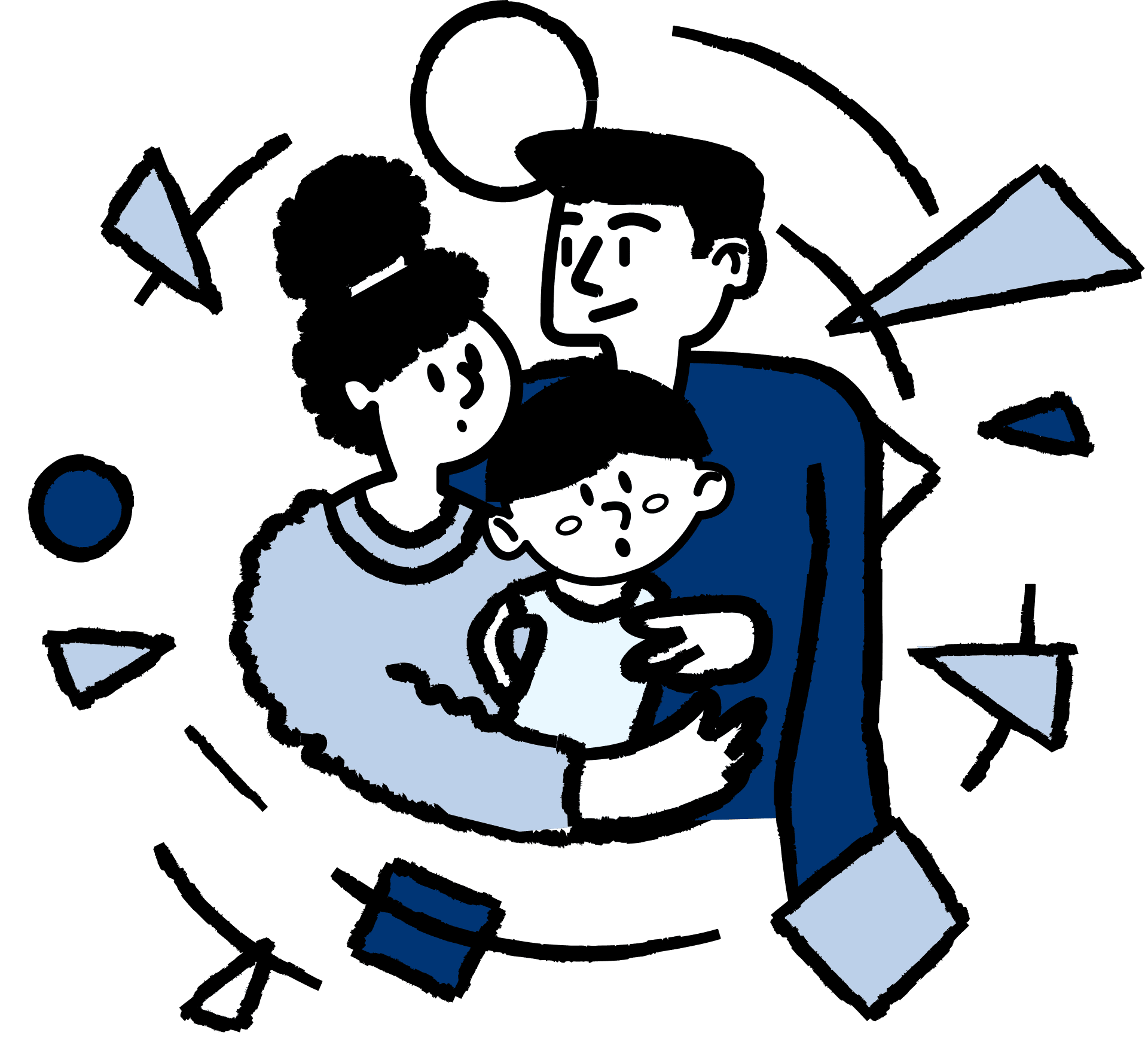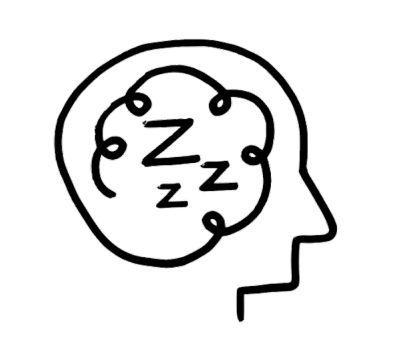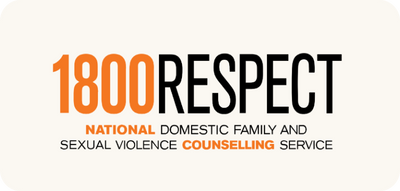Taking care of your mental health and wellbeing in the long term
Whether you’ve just left a domestic and family violence (DFV) situation or you’re still healing from a past abusive relationship, it’s normal to feel mixed emotions. You may feel a sense of safety, relief, and freedom while also feeling overwhelmed, anxious, traumatised, lonely, and uncertain about the future.
The important thing to remember is that whatever you're feeling right now - your emotions are valid and entirely understandable.
You also don’t have to figure everything out on your own. Healing and moving on after experiencing domestic and family violence can take a lot of time and will look different for everyone.
On this page, you’ll find information on:
- The importance of creating and leaning on a support system
- Therapies that may help with processing emotions and trauma
- Tips for rebuilding your self-esteem and having healthy relationships.
Scroll down to learn more.
Creating a support system
Deciding to leave an abusive relationship takes a huge amount of strength, courage, and more often than not, help from others. Not only is your physical safety a concern, so is your emotional wellbeing.
Creating a support system of trusted friends, family members, organisations like 1800RESPECT (1800 737 732), and other mental health services that feel right for you can help you find stability, safety, and set you up for a more connected and supportive future.
In a practical sense, you can lean on your support system to help with things like finding housing, getting DFV legal advice, and if applicable, helping with children when you need to attend to matters to work towards your future.
In terms of your mental health, a strong support system can help you take the steps needed to find yourself again, rebuild your self-esteem, and avoid the cycle of abuse.
- You could lean on your support system for help with things like:
- Making an appointment with a GP for a Mental Health Treatment Plan
- Finding a therapist that’s right for you
- Choosing which DFV support services to contact
- Getting rides to and from appointments
- Using your newfound freedom to build new connections
- Looking after your kids so you can work, attend an appointment, catch up on sleep, or practise self-care.
Connection is vital
Just like food and water are basic physical human needs, connection is a basic emotional need. Without it, we may experience loneliness or mental health conditions like depression and anxiety.
On top of allowing you to lean on others for support, connection can help you build and maintain healthy relationships in the future.
It can be scary opening up about what you’ve been through but talking to someone you trust can help reduce stress and make your struggles feel more manageable.
Outside of your support system, you could also speak with a:
- Colleague or classmate
- Manager or teacher
- Member of a support group
- Health professional
- Therapist.
If you’d prefer to speak with someone outside your personal life, you can try calling a support service like FriendLine.
FriendLine is for anyone 18+ in Australia who needs to reconnect or just wants a chat. And remember, Lifeline is always here.
Therapies that may help with processing emotions and trauma
Experiencing any type of domestic and family violence can be distressing and often traumatising. It makes sense if you feel like you’re struggling to cope or you’re feeling overwhelmed by your thoughts and emotions.
You may find it helpful to try:
- Cognitive behavioural therapy (CBT)
- Acceptance and commitment therapy (ACT)
- Eye movement desensitisation and reprocessing (EMDR).
CBT and ACT are evidence-based therapies that can help you confront and process painful emotions and give you strategies for coping in everyday life.
While there are ACT and CBT-based activities you can do on your own, it can be beneficial and more effective to work with a professional therapist.
For a trauma-informed alternative to traditional talk therapies like CBT, you can consider EMDR therapy.
A lot of people prefer EMDR for dealing with trauma because you don’t have to go into detail about the abuse or violence if you don’t want to.
Below, you can watch a video to learn more about how EMDR works.
DFV support groups and counselling
Attending a support group or getting DFV-specific counselling after experiencing domestic and family violence can help you process your experience and find hope to move forward.
Domestic and family violence support groups can offer a safe space for you to share your story with people who understand what you’ve been through.
- Support groups provide a valuable opportunity for connection and healing
- Hearing others’ stories can be a source of hope and encouragement
- You may also learn some new coping strategies.
Most support groups are led by members of the community who have also experienced domestic and family violence and are free to attend.
Interested in getting counselling for DFV?
On top of helping you understand the impacts that DFV can have on your life, trained counsellors can:
- Help with guidance on how to stay safe
- Give you strategies to manage feelings of distress, anger, anxiety depression, loneliness, trauma, and more
- Recommend and connect you with local services (such as DFV support groups near you)
- Offer advice for speaking with the police and going through the legal system.
If you’d like to speak with domestic and family violence counselling service, 1800RESPECT (1800 737 732) and Full Stop (1800 385 578) both operate 24 hours a day, 7 days a week.
Tips for rebuilding your self-esteem and having healthy relationships
When you’re constantly criticised, ridiculed or made to feel like everything is your fault, it’s natural to start to believe the things you’re hearing about yourself. As a result, you might think that you deserve the abuse, can’t do anything right, and aren't worthy of love and respect.
If you were prevented from maintaining your other relationships or engaging in hobbies you once enjoyed, you may have lost sense of who you are outside of the abusive relationship.
These types of experiences tend to lower your self-esteem, which can have long-term impacts on the way you view yourself, your abilities, and your worth as a person.
After experiencing domestic and family violence, the most important relationship to work on is the one you have with yourself.
- Working on your relationship with yourself can look like:
- Speaking to yourself how you’d speak to a friend in the same situation
- Allowing yourself to put your self-care needs before you help others
- Setting and maintaining boundaries with the people you let into your life
- Taking time to reflect on your experience and reframe how you look at what happened.
For example, if you were in a relationship with someone who used emotional abuse tactics like gaslighting and coercive control, it can be helpful to look back on particular times and acknowledge that what you were experiencing was domestic and family violence. You didn't imagine it and you didn't deserve how you were being treated.
Your relationships with others
When you’re feeling ready to build new relationships, it’s important to know what a healthy relationship looks like.
Healthy relationships allow you and the other person to have:
- Open and honest communication
- Mutual trust and respect
- Independence
- Mutually respected boundaries
- Shared values
- Space for difficult conversations
- Safe emotional and physical connection.
When something feels wrong in a relationship, it’s usually because one or more of the above has been damaged or is missing entirely.

“Adolescence and early adulthood are defining times. Everyone knows this, but I think it becomes truly clear only when you look back. Events from those years shape how you see the world and how you react to it. For me, the domestic violence, my father’s behaviour, and the challenges with my mum created a sense of unease and distrust that still lingers today. Even as an adult, I find it hard to feel safe in their company.”
As much as we need to feel connected to others, rushing into a new intimate relationship is not as important as your emotional safety and wellbeing.
It’s okay to take the time you need to get clear on what your needs and boundaries are.
For more ways you can take care of your mental health after experiencing domestic and family violence, you can:
- Learn how self-esteem impacts your mental health
- Get ideas for prioritising and practising self-care
- Read our guide on journaling your thoughts and feelings
- Contact a DFV support service for counselling and further resources.
If you’re a man using abuse or violence in relationships and are here because you want to explore options for changing your behaviour, you can contact Men’s Referral Service (1300 766 491) 24 hours a day, 7 days a week. It’s free, confidential, and a positive first step.











